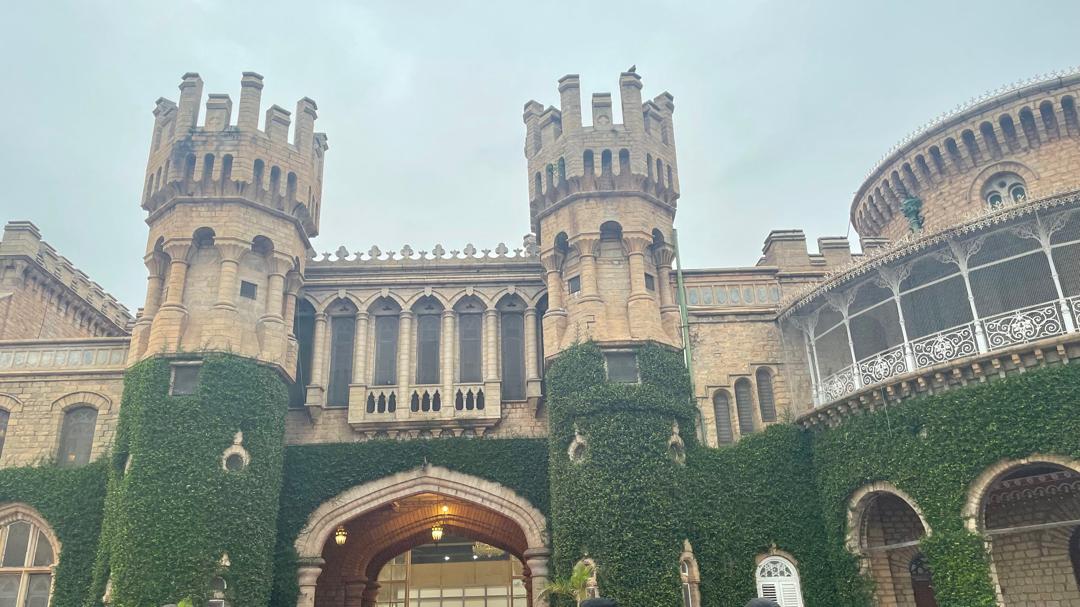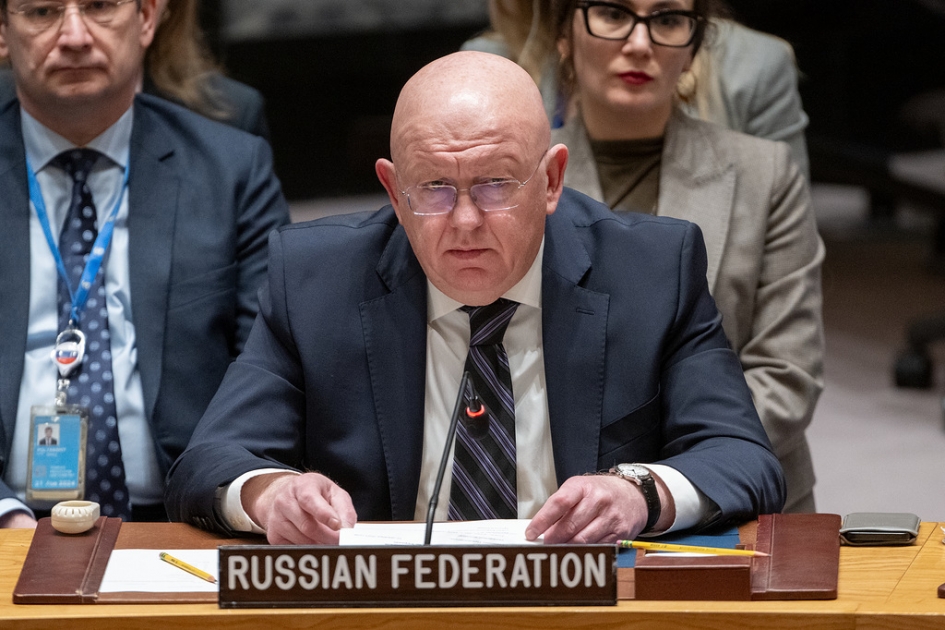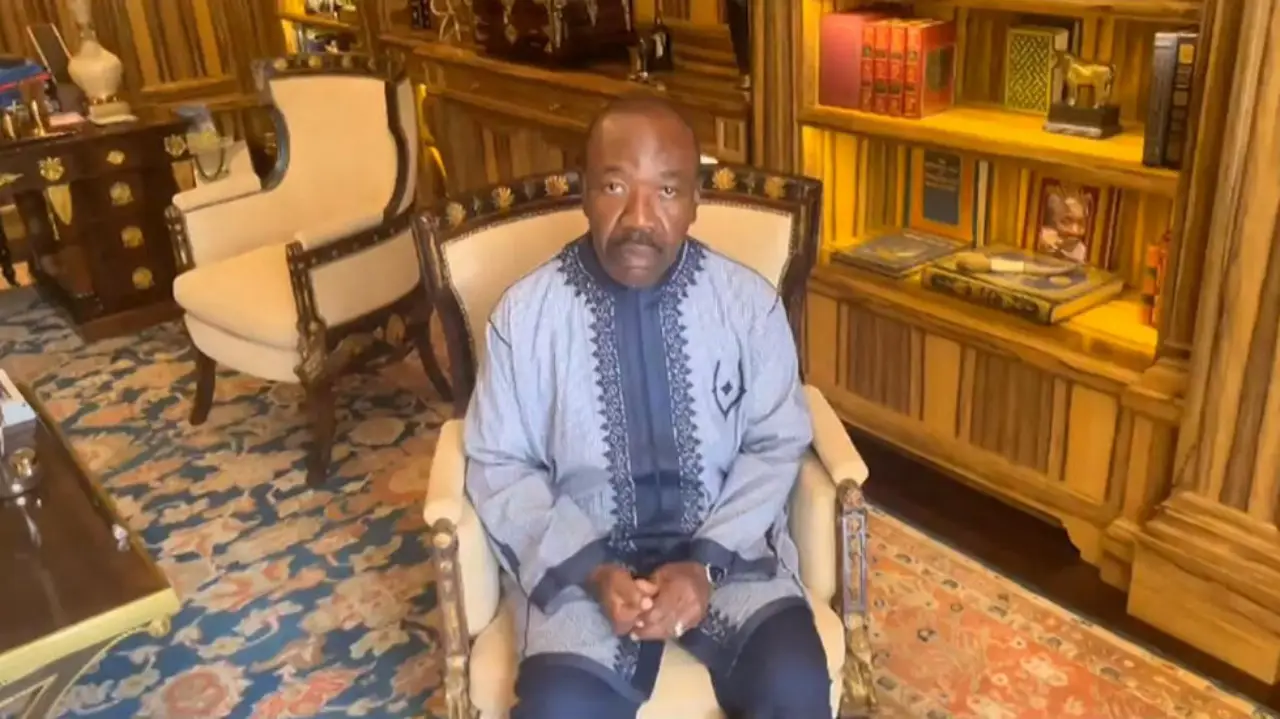
Russian President Vladimir Putin
On October 21, 2021, Vladimir Putin, the President of the Russian Federation took part in a plenary session of the 18th annual meeting of the Valdai International Discussion Club on the theme ‘Global Shake-up in the 21st Century: The Individual, Values and the State’ in Sochi, Russia.
In his speech at the Valdai meeting, Russian President V. Putin raised pressing issues that, without exaggeration, matter for people around the world. Indeed, we are living in an era of great change. Humanity entered into a new era about three decades ago when the main conditions were created for ending the military-political and ideological confrontation.
A search for a new balance, sustainable relations in the social, political, economic, cultural, and military areas, and support for the world system was launched at that time. We were looking for this support but did not find it, at least so far. Meanwhile, those who felt like the winners after the end of the Cold War and thought they climbed Mount Olympus soon discovered that the ground was falling away underneath even there, and this time it was their turn, and nobody could “stop this fleeting moment” no matter how fair it seemed.

In general, it must have seemed that we adjusted to this continuous inconstancy, unpredictability and permanent state of transition, but this did not happen either. This is not simply a shift in the balance of forces or scientific and technological breakthroughs, though both are also taking place.
Today, we are facing systemic changes in all directions – from the increasingly complicated geophysical condition of our planet to a more paradoxical interpretation of what a human is and what the reasons for his existence are.
Climate change and environmental degradation are so obvious that even the most careless people can no longer dismiss them. One can continue to engage in scientific debates about the mechanisms behind the ongoing processes, but it is impossible to deny that these processes are getting worse, and something needs to be done.
The coronavirus pandemic has become another reminder of how fragile our community is, how vulnerable it is, and our most important task is to ensure humanity a safe existence and resilience.
To increase our chance of survival in the face of cataclysms, we absolutely need to rethink how we go about our lives, how we run our households, how cities develop or how they should develop; we need to reconsider the economic development priorities of the entire states.
The socioeconomic problems facing humankind have worsened to the point where, in the past, they would trigger worldwide shocks, such as world wars or bloody social cataclysms.
Everyone is saying that the current model of capitalism which underlies the social structure in the overwhelming majority of countries has run its course and no longer offers a solution to a host of increasingly tangled differences.
Everywhere, even in the richest countries and regions, the uneven distribution of material wealth has exacerbated inequality, primarily, inequality of opportunities both within individual societies and at the international level. No doubt, these problems threaten us with major and deep social divisions.
Furthermore, a number of countries and even entire regions are regularly hit by food crises. There is every reason to believe that this crisis will become worse in the near future and may reach extreme forms. There are also shortages of water and electricity, not to mention poverty, high unemployment rates or lack of adequate healthcare.
Lagging countries are fully aware of that and are losing faith in the prospects of ever catching up with the leaders. Disappointment spurs aggression and pushes people to join the ranks of extremists. People in these countries have a growing sense of unfulfilled and failed expectations and the lack of any opportunities not only for themselves, but for their children, as well. This is what makes them look for better lives and results in uncontrolled migration, which, in turn, creates fertile ground for social discontent in more prosperous countries.
The pandemic, which, in theory, was supposed to rally the people in the fight against this massive common threat, has instead become a divisive rather than a unifying factor. There are many reasons for that, but one of the main ones is that they started looking for solutions to problems among the usual approaches – a variety of them, but still the old ones, but they just do not work. Or, to be more precise, they do work, but often and oddly enough, they worsen the existing state of affairs.
V. Putin recalled that Russia has repeatedly called for stopping these inappropriate ambitions and for working together. There is a need to counter the coronavirus infection together. But nothing changes; everything remains the same despite the humanitarian considerations – the sanctions that remain in place against those states that badly need international assistance.
Where are the humanitarian fundamentals of Western political thought? It appears there is nothing there, just idle talk.
Furthermore, he said, the technological revolution, impressive achievements in artificial intelligence, electronics, communications, genetics, bioengineering, and medicine open up enormous opportunities, but at the same time, in practical terms, they raise philosophical, moral, and spiritual questions that were until recently the exclusive domain of science fiction writers.
What will happen if machines surpass humans in their ability to think? Where is the limit of interference in the human body beyond which a person ceases being himself and turns into some other entity? What are the general ethical limits in the world where the potential of science and machines are becoming almost boundless? What will this mean for each of us, for our descendants, our nearest descendants – our children and grandchildren?
Verbally, all states talk about their commitment to the ideals of cooperation, and a willingness to work together for resolving common problems but, unfortunately, these are just words. In reality, the opposite is happening, and the pandemic has served to fuel the negative trends that emerged long ago and are now only getting worse.
The approach based on the proverb, “your own shirt is closer to the body,” has finally become common and is now no longer even concealed. Moreover, this is often even a matter of boasting and brandishing. Egotistic interests prevail over the notion of the common good.
It was emphasized also that we need to face the fact that the global governance institutions are not always effective and their capabilities are not always up to the challenge posed by the dynamics of global processes. In this sense, the pandemic could help – it clearly showed which institutions have what it takes and which need fine-tuning.
The re-alignment of the balance of power presupposes a redistribution of shares in favour of rising and developing countries that until now felt left out. To put it bluntly, the Western domination of international affairs, which began several centuries ago and, for a short period, was almost absolute in the late 20th century, is giving way to a much more diverse system.
This transformation is not a mechanical process. Arguably, political history has no examples of a stable world order being established without a big war and its outcomes as the basis, as was the case after World War II.
So, we have a chance to create an extremely favourable precedent. The attempt to create it after the end of the Cold War on the basis of Western domination failed, as we see. The current state of international affairs is a product of that very failure, and we must learn from this.
Some may wonder, what have we arrived at? We have arrived somewhere paradoxical. Just an example: for two decades, the most powerful nation in the world has been conducting military campaigns in two countries that cannot be compared to any standard.
But in the end, it had to wind down operations without achieving a single goal that it had set for itself going in 20 years ago and to withdraw from these countries causing considerable damage to others and itself. In fact, the situation has worsened dramatically.
V. Putin summarised that the coronavirus pandemic has clearly shown that the international order is structured around nation-states. Above this recent developments have shown that global digital platforms – with all their might, which we could see from the internal political processes in the United States – have failed to usurp political or state functions.
These attempts proved ephemeral. The US authorities, as I said, have immediately put the owners of these platforms in their place, which is exactly what is being done in Europe, if you just look at the size of the fines imposed on them and the demonopolisation measures being taken. You are aware of that.
In recent decades, many have tossed around fancy concepts claiming that the role of the state was outdated and outgoing. Globalization supposedly made national borders an anachronism, and sovereignty an obstacle to prosperity. This is also what was said by those who attempted to open up other countries’ borders for the benefit of their own competitive advantages.
This is what actually happened. And as soon as it transpired that someone somewhere is achieving great results, they immediately returned to closing borders in general and, first of all, their own customs borders and what have you, and started building walls. Events, when we spoke about the need to open up borders went in the opposite direction. Only sovereign states can effectively respond to the challenges of the times and the demands of the citizens.
Accordingly, any effective international order should take into account the interests and capabilities of the state and proceed on that basis, and not try to prove that they should not exist. Furthermore, it is impossible to impose anything on anyone, be it the principles underlying the sociopolitical structure or values that someone, for their own reasons, has called universal.
After all, it is clear that when a real crisis strikes, there is only one universal value left and that is human life, which each state decides for itself how best to protect based on its abilities, culture, and traditions.
V. Putin went on by saying that the importance of solid support in the sphere of morals, ethics and values is increasing dramatically in the modern fragile world. In point of fact, values are a product, a unique product of cultural and historical development of any nation.
The mutual interlacing of nations definitely enriches them. Openness expands their horizons and allows them to take a fresh look at their own traditions. But the process must be organic, and it can never be rapid. Any alien elements will be rejected anyway, possibly bluntly.
Any attempts to force one’s values on others with an uncertain and unpredictable outcome can only further complicate a dramatic situation and usually produce the opposite reaction and an opposite from the intended result.
We look in amazement at the processes underway in the countries which have been traditionally looked at as the standard-bearers of progress. Of course, the social and cultural shocks that are taking place in the United States and Western Europe are none of our business; we are keeping out of this.
Some people in the West believe that an aggressive elimination of entire pages from their own history, “reverse discrimination” against the majority in the interests of a minority, and the demand to give up the traditional notions of mother, father, family and even gender, they believe that all of these are the mileposts on the path towards social renewal.
President V. Putin confirmed that Russians have a different viewpoint, at least the overwhelming majority of Russian society – it would be more correct to put it this way – has a different opinion on this matter. We believe that we must rely on our own spiritual values, our historical tradition, and the culture of our multiethnic nation.
The advocates of so-called ‘social progress’ believe they are introducing humanity to some kind of a new and better consciousness. Looking at what is happening in a number of Western countries we are amazed to see the domestic practices, which we, fortunately, have left.
The fight for equality and against discrimination has turned into aggressive dogmatism bordering on absurdity when the works of the great authors of the past – such as Shakespeare – are no longer taught at schools or universities because their ideas are believed to be backward. The classics are declared backward and ignorant of the importance of gender or race.
Countering acts of racism is a necessary and noble cause, but the new ‘cancel culture’, has turned it into ‘reverse discrimination that is, reverse racism. The obsessive emphasis on race is further dividing people when the real fighters for civil rights dreamed precisely about erasing differences and refusing to divide people by skin colour. In a number of Western countries, the debate over men’s and women’s rights has turned into a perfect phantasmagoria.
Zealots of these new approaches even go so far as to want to abolish these concepts altogether. Anyone who dares mention that men and women actually exist, which is a biological fact, risks being ostracised. “Parent number one” and “parent number two,” “’birthing parent” instead of “mother,” and “human milk” replacing “breastmilk” because it might upset the people who are unsure about their own gender.
Not to mention some truly monstrous things when children are taught from an early age that a boy can easily become a girl and vice versa. That is, the teachers actually impose on them a choice we all supposedly have. They do so while shutting the parents out of the process and forcing the child to make decisions that can upend their entire life.
They do not even bother to consult with child psychologists – is a child at this age even capable of making a decision of this kind? Calling a spade a spade, this verges on a crime against humanity, and it is being done in the name and under the banner of progress.
V. Putin concluded by saying that if someone likes this, let them do it. In shaping its approaches, Russia will be guided by a healthy conservatism. This conservative approach is not about ignorant traditionalism, a fear of change or a restraining game, much less about withdrawing into one’s own shell.
It is primarily about reliance on a time-tested tradition, the preservation and growth of the population, a realistic assessment of oneself and others, a precise alignment of priorities, a correlation of necessity and possibility, a prudent formulation of goals, and a fundamental rejection of extremism as a method.
In the impending period of global reconstruction, which may take quite long, with its final design being uncertain, moderate conservatism is the most reasonable line of conduct. It will inevitably change at some point, but so far, do no harm – the guiding principle in medicine – seems to be the most rational one.
For Russia, these are not some speculative postulates, but lessons from our difficult and sometimes tragic history. The cost of ill-conceived social experiments is sometimes beyond estimation. Such actions can destroy not only the material but also the spiritual foundations of human existence, leaving behind moral wreckage where nothing can be built to replace it for a long time.
V. Putin emphasised that resolving many urgent problems the world has been facing would be impossible without close international cooperation. In order to achieve a global solution, states and people have to transfer their sovereign rights to supra-national structures to an extent that few, if any, would accept. This is primarily attributable to the fact that you have to answer for the outcomes of such policies not to some global public, but to your citizens and voters.
One of the ways to promote these efforts could be, for example, to draw up, at the UN level, a list of challenges and threats that specific countries face, with details of how they could affect other countries. This effort could involve experts from various countries and academic fields. We believe that developing a roadmap of this kind could inspire many countries to see global issues in a new light and understand how cooperation could be beneficial for them.
The United Nations as the central international institution retains its enduring value. In the turbulent world, it is the UN that brings a touch of reasonable conservatism into international relations, something that is so important for normalising the situation.









